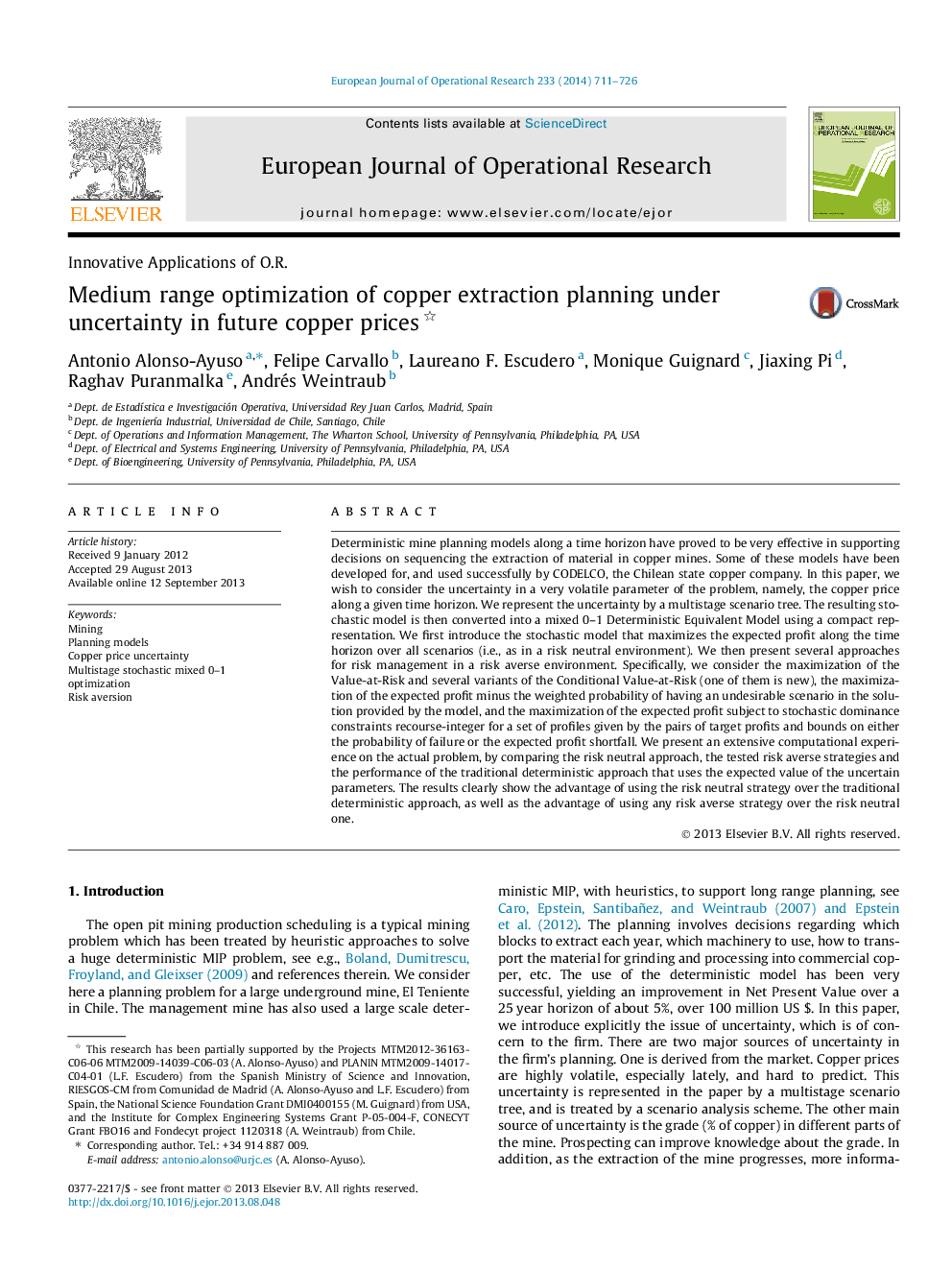| Article ID | Journal | Published Year | Pages | File Type |
|---|---|---|---|---|
| 6897709 | European Journal of Operational Research | 2014 | 16 Pages |
Abstract
Deterministic mine planning models along a time horizon have proved to be very effective in supporting decisions on sequencing the extraction of material in copper mines. Some of these models have been developed for, and used successfully by CODELCO, the Chilean state copper company. In this paper, we wish to consider the uncertainty in a very volatile parameter of the problem, namely, the copper price along a given time horizon. We represent the uncertainty by a multistage scenario tree. The resulting stochastic model is then converted into a mixed 0-1 Deterministic Equivalent Model using a compact representation. We first introduce the stochastic model that maximizes the expected profit along the time horizon over all scenarios (i.e., as in a risk neutral environment). We then present several approaches for risk management in a risk averse environment. Specifically, we consider the maximization of the Value-at-Risk and several variants of the Conditional Value-at-Risk (one of them is new), the maximization of the expected profit minus the weighted probability of having an undesirable scenario in the solution provided by the model, and the maximization of the expected profit subject to stochastic dominance constraints recourse-integer for a set of profiles given by the pairs of target profits and bounds on either the probability of failure or the expected profit shortfall. We present an extensive computational experience on the actual problem, by comparing the risk neutral approach, the tested risk averse strategies and the performance of the traditional deterministic approach that uses the expected value of the uncertain parameters. The results clearly show the advantage of using the risk neutral strategy over the traditional deterministic approach, as well as the advantage of using any risk averse strategy over the risk neutral one.
Related Topics
Physical Sciences and Engineering
Computer Science
Computer Science (General)
Authors
Antonio Alonso-Ayuso, Felipe Carvallo, Laureano F. Escudero, Monique Guignard, Jiaxing Pi, Raghav Puranmalka, Andrés Weintraub,
